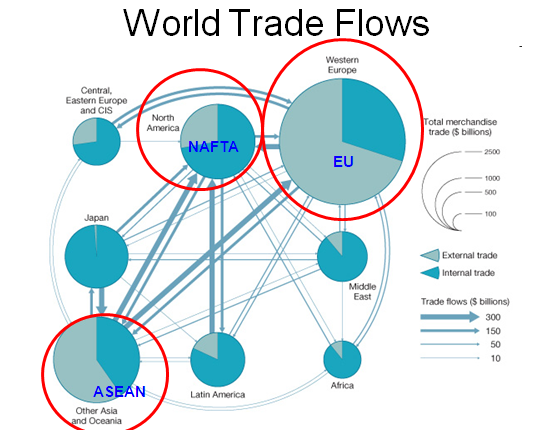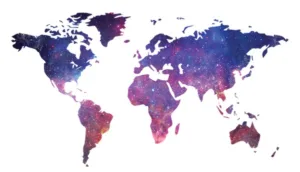In last week’s Display Monitor, Bob commented on the negative consequences for ZTE after the USA announced an embargo on the Chinese technology company. As he pointed out, trade wars typically are a lose-lose strategy, while open trade is creating a win-win environment. Well, since his statement the world has become a lot more complicated than that and confuses pretty much everyone around.

Let me get back to some facts that are often overlooked in comments about this case. From the USA perspective, ZTE has ties to the Chinese intelligence community and has built in ‘back doors’ that allowed Chinese hackers to access the back end of network components installed by USA companies in America. While ZTE has denied these allegations, other intelligence agencies confirmed that the software includes a back door access. Who is using this access is, of course, unclear. ZTE engineers making sure everything is working alright or Chinese intelligence officers snooping around may be two sides of the same coin.
The allegations that ZTE equipment was illegally sold to Iran carry more weight. In essence, ZTE was caught lying to US authorities. I wonder what would happen to the same people if they were lying to the Chinese government? As a consequence, the US Department of Commerce has banned American companies from selling components to ZTE for seven years. The timeframe seems to indicate a certain belief in superstition on the behalf of the Commerce Department officials!
What was mostly seen as a show of power by the of the US government in the ‘Trade Games’, took a surprising turn, when the US president announced that he will work with the Chinese government to bring ZTE back onto its feet as a part of a trade deal that would also allow US-sourced components to be sold to and used by ZTE. So, as long as ZTE buys components from US companies, they can violate trade embargos without consequences? Is that the logic to this?
On a different note I believe that this is a staged event to show the willingness of the USA to work with other countries, as long as the USA benefits. This is how the economy should work, any action that benefits only one side will lead to disagreements or worse down the road.
By no means is this article reflecting my political beliefs, in terms of whether I am conservative or liberal. It is just a reflection of a world economy that, in certain aspects, has developed in a way that diverges from the direction indicated by voting in individual countries. While the world was moving along to become a more international community, recent elections have favored a more isolationist strategy in some countries. This can be seen not only in the current US government but also in the Brexit vote in the UK. Part of this is driven by the view that trade deficits are bad for the economy, a view that is not shared by all economists.
World Map, credit: Pixabay.com As a consequence we have to question today’s product sourcing strategies. If all displays are made in the most cost effective way, i.e. in China for example, free trade would be the only way to guarantee access for everyone in the world. If the current political world view favors closed borders, we will have a problem going forward with the worldwide development of consumer devices. Technology development has historically been a key factor in the fall of isolated countries.
When we take a look at the development of display technology we can see a misbalance in manufacturing and development resources. In recent years, the Asian countries have been making strides in increasing their development efforts, while the western countries have been scaling back their efforts to a certain extent. Western countries are more interested in the material aspects and new technologies, while the continued development of LCD production, for example, has more and more shifted to Asia.
If the current trend towards display manufacturing concentrating in one country, i.e. China, continues, western countries will fall back more and more. As Apple has shown, understanding display technology and how to exploit it is enough to create good products. It is the design phase that is most important in developing successful products for the market.
If the availability of components, displays for example, is hindered by political trade barriers, this model doesn’t work any more. It would make it imperative for any CE company to develop their products in the same trade zone that the main components are coming from. Assuming increasing trade barriers as a consequence of current political isolation tendencies, the existing design strategy for CE products will not work very well going forward. Korea would have great displays, the USA fast processors and China could make everything cheaply. None of these would be able to develop and manufacture any product that comes close to the high end products we have in the market today.
 World Trade flows – source Derick Giles Manning http://tinyurl.com/yc3k5ot6
World Trade flows – source Derick Giles Manning http://tinyurl.com/yc3k5ot6
While the ZTE incident may just have been a way of creating a better bargaining position in the ‘Trade Games’, it shows that the political reality in our world today is not matched to the development efforts of large scale companies. For example, the market capitalisation of Apple ($924 billion at press time – Man. Ed.) is larger than the GDP of countries like the Netherlands and Switzerland ($777 billion and $669 billion in 2016 – source IMF – Man. Ed.). There are only 19 countries who have a GDP larger than the Apple market cap. While market cap is the total value of a company, we can also look at the annual revenue of Apple ($247 billion in the last year) and compare that to the GDP of countries. Apple captures as much money per year as Finland’s GDP ($238 billion in 2016. Source:IMF). What I am trying to say is that the political world order and the economic power of large companies are reaching the same magnitude, which may create some interesting situations going forward.
The other alternative to internationalism is that every trade zone creates their own manufacturing capabilities and technology development, making them immune against any tariffs and duties and also exchange rate fluctuations. This would mean going forward to the past and require investments beyond the capabilities of any particular country. As far as I am seeing it, we are stuck with the current system for now. The remaining question is how do we move forward from here? NH

